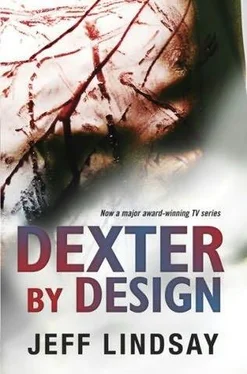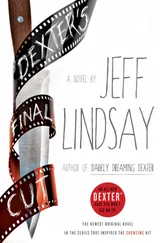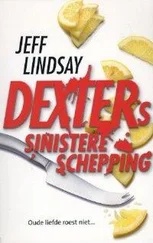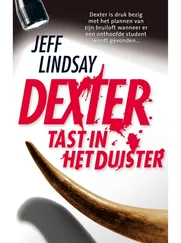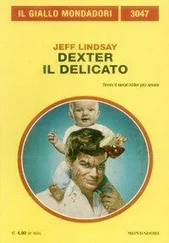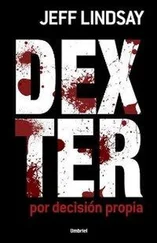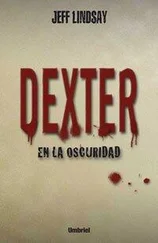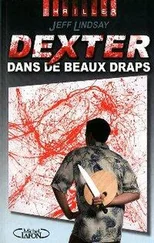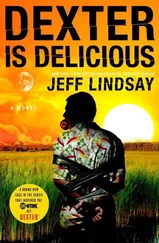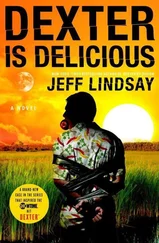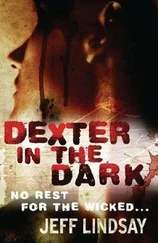Debs glanced at the list. “Alice Bronson” she said. “She was stealing money from an office account. When they called her on it, she threatened them with battery and murder.”
“One at a time, or together?” I asked, but Debs just glared at me and shook her head.
“This won't be anything” she said, and I tended to agree. But of course, police work is composed mostly of doing the obvious and hoping you get lucky, so we unbuckled our seat belts and kicked through the leaves and other lawn trash to the front door. Debs pounded on the door mechanically and we could hear it echo through the house. It was clearly as empty as my conscience.
Deborah looked down at the list in her hand and found the name of the suspect who was supposed to live here. “Ms Bronson?” she called out, but there was even less response, since her voice did not boom through the house like her knocking did.
“Shit” Debs said again. She pounded one more time with the same result —nothing.
Just to be absolutely sure we walked around the house one time and peered in the windows, but there was nothing to see except some very ugly green and maroon curtains left hanging in the otherwise bare living room. When we circled back around to the front again, there was a boy beside our car, sitting on a bicycle and staring at us. He was about eleven or twelve years old and had long hair plaited into dreadlocks and then pulled back into a ponytail.
“They been gone since April” he said. “Did they owe you guys money, too?”
“Did you know the Bronsons?” Deborah asked the boy.
He cocked his head to one side and stared at us, looking a lot like a parrot trying to decide whether to take the cracker or bite the finger. “You guys cops?” he said.
Deborah held up her badge and the boy rolled forward on his bike to take a closer look. “Did you know these people?” Debs said again.
The boy nodded. I just wanted to be sure” he said. “Lots of people have fake badges.”
“We really are cops” I said. “Do you know where the Bronsons went?”
“Naw” he said. “My dad says they owed everybody money and they prolly changed their name or went to South America or something.”
“And when was that?” Deborah asked him.
“Back in April” he said. I already said.” Deborah looked at him with restrained irritation and then glanced at me. “He did” I told her. “He said April.”
“What did they do?” the boy asked, a little too eagerly, I thought.
“Probably nothing” I told him. “We just wanted to ask them a few questions.”
“Wow” the kid said. “Murder? Really?” Deborah made a strange little shake of her head, as if she was clearing away a cloud of small flies. “Why do you think it was murder?” she asked him.
The boy shrugged. “On TV” he said simply. “If it's murder they always say it's nothing. If it's nothing they say it's a serious violation of the penal code or something like that.” He snickered. “Peenal code” he said, grabbing at his crotch.
Deborah looked at the kid and just shook her head. “He's right again” I said to her. I saw it on CSL”
“Jesus” said Debs, still shaking her head.
“Give him your card” I said. “He'll like that.”
“Yeah” the boy said, smirking happily, “and tell me to call if I think of anything.”
Deborah stopped shaking her head and snorted. “Okay, kid, you win” she said. She flipped him her business card, and he caught it neatly. “Call me if you think of anything” she said.
“Thanks” he said, and he was still smiling as we climbed into the car and drove away, although whether because he really did like the card, or he was just pleased to have gotten the best of Deborah, I couldn't say.
I glanced at the list beside her on the seat. “Brandon Weiss is next” I said. Urn, a writer. He wrote some ads they didn't like, and he was fired.”
Deborah rolled her eyes. “A writer” she said. “What did he do, threaten them with a comma?”
“Well, they had to call in security and have him removed.” Deborah turned and looked at me. “A writer” she said. “Come on, Dex.”
“Some of them can be quite fierce” I said, although it seemed like a bit of a stretch to me, too.
Deborah looked back at the traffic, nodded and chewed on her lip. “Address?” she said.
I looked down at the paper again. “This sounds more like it” I said, reading off an address just off North Miami Avenue. “It's right in the Miami Design District. Where else would a homicidal designer go?”
“I guess you would know” she said, rather churlishly I thought, but not much more than normal, so I let it go.
“It can't possibly be worse than the first two” I said.
“Yeah, sure, third time's the charm” Deborah said sourly.
“Come on, Debs” I said. “You need to show a little enthusiasm.” Deborah pulled the car off the highway and into the parking lot of a fast food spot, which surprised me a great deal because, in the first place, it wasn't quite lunchtime and, in the second place, the things this place served were not quite food, no matter how fast.
But she made no move to go into the restaurant. Instead, she slammed the gear lever into Park and turned to face me. “Fuck it” she said and I could tell that something was bothering her.
“Is it that kid?” I asked. “Or are you still pissed off about Meza?”
“Neither” she said. “It's you.” If I had been surprised by her choice of restaurants, I was absolutely astonished at her subject matter. Me? I replayed the morning in my head and found nothing objectionable. I had been the good soldier to her crabby general; I had even made fewer than normal insightful and clever remarks, for which she should really be grateful, since she was usually the target of them.
“I'm sorry” I said. I don't know what you mean.” I mean you,” she said, very unhelpfully. “All of you.” I still don't know what you mean,” I said. “There isn't that much of me.”
Deborah slammed the palm of her hand on the steering wheel.
“Goddamn it, Dexter, the clever-ass shit doesn't work for me any more.”
Have you ever noticed that every now and then you'll overhear an amazingly clear declarative sentence when you're out in public, spoken with such force and purpose that you absolutely yearn to know what it means, because it is just so forceful and crystalline? And you want to follow along behind whoever just spoke, even though you don't know them, just to find out what that sentence means and how it would affect the lives of the people involved?
I felt like that now: I had no idea at all what she was talking about, but I really wanted to know.
Happily for me, she didn't keep me waiting.
“I don't know if I can do this any more,” she said.
“Do what?”
I am riding around in a car with a guy who has killed what, ten, fifteen, people?”
It's never pleasant to be so grossly underestimated, but it didn't seem like the right time to correct her. “All right” I said.
“And I am supposed to catch people like you, and put them away for good, except you're my brotherY she said, hitting the wheel with her hand to emphasize each syllable —which she didn't really need to do, since I heard her very clearly. I finally understood what all her recent churlishness had been about, although I still had no idea why it had taken until now for her to blow up on the subject.
There was a great deal to what she said, of course, and if I had really been as smart as I think I am I would have known that at some point we were going to have this conversation, and I would have been ready for it. But I had foolishly assumed that there is nothing in the world as powerful as the status quo, and she had caught me by surprise. Besides, as far as I could see, there had been nothing in the recent past that would trigger this kind of confrontation; where do these things come from?
Читать дальше
